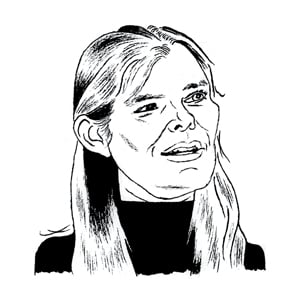What MOOCs Teach Us
Three years ago, several of us at Stanford launched the first massive open online courses, or MOOCs. We wanted to make the teaching of the world’s great universities accessible to anyone with an Internet connection. The company we founded, Coursera, recently passed a milestone: 10 million enrolled learners. That makes it a good time to reflect on what we’ve learned.

One early prediction about MOOCs was that they would undermine or even replace the traditional college education—an idea we at Coursera never endorsed (see “What Are MOOCs Good For?”).
And it hasn’t happened—only 15 percent of our current learners are college age. The other 85 percent fall largely into two categories. The first are adults looking to expand their horizons. The second—nearly half of our learners—are working adults looking to build critical job skills for a better career. This shouldn’t surprise anyone. The world around us is changing rapidly, and many of the skills you need today—data science, mobile apps, digital marketing—didn’t even exist a decade ago.
How do we create an educational experience suited to this very different population? First, we can share our knowledge about learner interests with our university partners, who can experiment with new courses, new subject areas, and hands-on projects that align with problem-solving in real-world settings.
We also need to find the right delivery method. Working adults have many demands on their time; they have to structure their learning around their lives, rather than the other way around. For this reason, we’re making the transition to an on-demand model that lets people engage with the content at their own pace.
Finally, we need to educate people on the value of this new type of credential. To complete a MOOC is a measure not only of job-related skills but also of qualities like dedication and self-motivation. Fortunately, these criteria are gaining credence—in a joint study by Duke University and RTI International, 73 percent of employers said that they would look favorably on MOOC completion in the hiring process. Many who have completed MOOCs have told us that they’ve gained tangible benefits, including new jobs, new responsibilities, and promotions.
The growing demand for alternative learning resources is a by-product of the ever-shifting skills gap. It’s also a signal that a four-year degree is no longer sufficient for a lifelong career. MOOCs won’t be the only solution to these much greater issues, but they can be an important component in transforming learning to better suit the needs of the 21st century.
Daphne Koller is cofounder and president of Coursera.
Keep Reading
Most Popular
Large language models can do jaw-dropping things. But nobody knows exactly why.
And that's a problem. Figuring it out is one of the biggest scientific puzzles of our time and a crucial step towards controlling more powerful future models.
The problem with plug-in hybrids? Their drivers.
Plug-in hybrids are often sold as a transition to EVs, but new data from Europe shows we’re still underestimating the emissions they produce.
Google DeepMind’s new generative model makes Super Mario–like games from scratch
Genie learns how to control games by watching hours and hours of video. It could help train next-gen robots too.
How scientists traced a mysterious covid case back to six toilets
When wastewater surveillance turns into a hunt for a single infected individual, the ethics get tricky.
Stay connected
Get the latest updates from
MIT Technology Review
Discover special offers, top stories, upcoming events, and more.